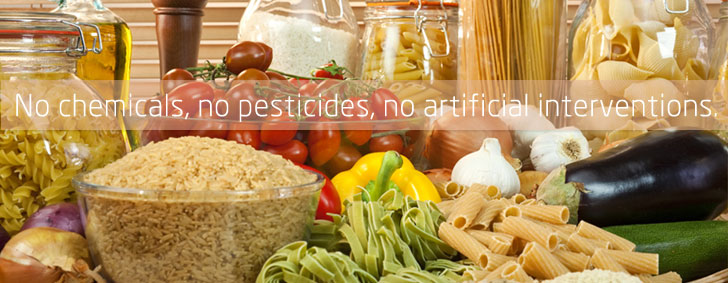 Before you go out and buy a bunch of organic foods blindly, let’s really sit down and talk about what organic means.
Before you go out and buy a bunch of organic foods blindly, let’s really sit down and talk about what organic means.
According to Wikipedia organic foods are “Foods that are produced using methods that do not involve modern synthetic inputs such as synthetic pesticides and chemical fertilizers. Organic foods are also not processed using irradiation, industrial solvents, or chemical food additives.”
So organic food leaves out the things I talked about a couple of posts back. Organic foods are void of pesticides and fertilizers. They aren’t irradiated or processed chemically – all important stuff.
However, the word “organic” is not a legal term in the United States, so sometimes it seems quite meaningless. In the United States, the legal term for organic food is “Certified Organic.” Food can be certified by the USDA when it meets certain conditions set out by the National Organic Program (NOP).

Certified Organic produce must be grown using organic methods without chemical pesticides, genetically modified ingredients or petroleum or sewage-based fertilizers. It also can’t be processed with irradiation or contain prohibitive preservatives.
Certified Organic livestock must not be given antibiotics or growth hormones. They also need to have access to the outdoors.
When it comes to processed Certified Organic foods, 95% of the ingredients must be grown organically to contain the seal. And if a label says it is “made with organic ingredients,” it only needs to be made of 70-95% organic ingredients.
Food that bears this certification seal is generally thought to provide the consumer protection, but it’s not without its critics. Critics are concerned that the regulations deal with the way the food is grown, but offers no guarantee of the quality of the product. There are also reports that the certification standards are lacking and that includes a 2010 report from the Inspector General.
So what does this all mean for the consumer?
1. Products, especially non-food items, can be labeled as organic, but don’t meet the appropriate guidelines. Non-food products are not subject to the Certified Organic standards.
2. The guidelines may not be enforced properly, causing some foods to be labeled as Certified Organic when they really shouldn’t be.
3. Food that is organic may not actually be certified because the grower chooses not to get  certified or isn’t able to get certified because they produce less than $5000 in products each year.
certified or isn’t able to get certified because they produce less than $5000 in products each year.
What can you do?
Given all these potential problems with organic labeling, it’s natural to wonder if it’s all worth it. The key is to read labels and be aware of word play. Stating things like “made with organic ingredients” is a typical way of making something sound good, when it may not be quite what it seems. Above all, know where your food is coming from, buy locally and do your homework.



